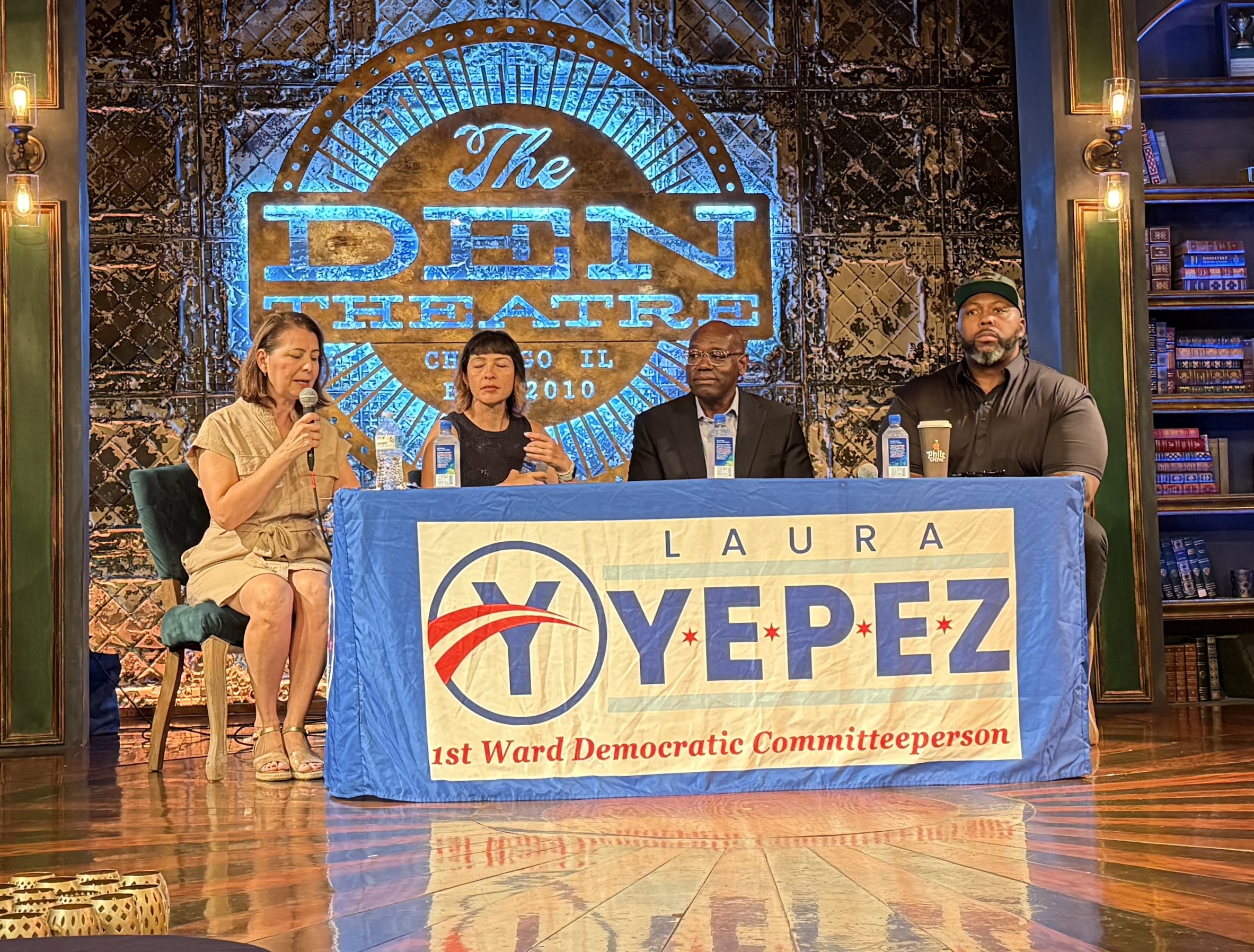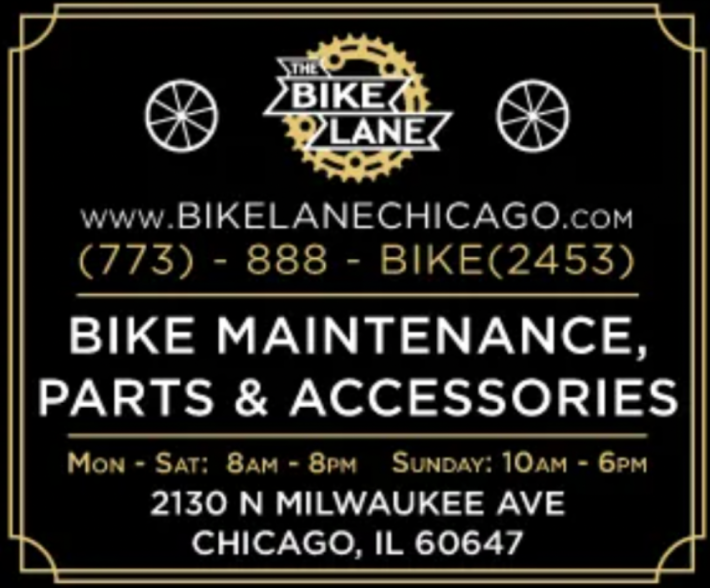
There's an old saying that "You can't dance at two weddings with one behind." But that's essentially what a single public transportation advocate would have had to do to attend both of the Transit Town Hall meetings that took place in Wicker Park and Uptown last Saturday at the same time! As you can see from the flyers below, these events were a veritable smorgasbord of politicians promoting sustainable transportation in Chicago and Springfield.
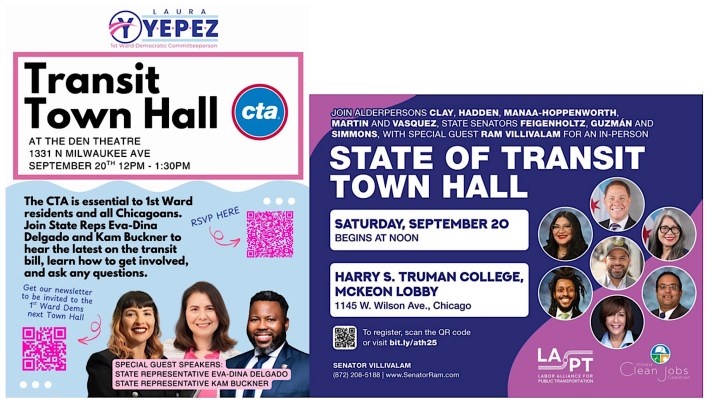
In addition to several other walk/bike/transit-friendly alderpersons and State representatives, these events featured some key players in the current drama over efforts to avert the looming $771 million Chicagoland transit fiscal cliff. The Wicker Park panel, held at the Den Theater, included Illinois House Majority Leader Eva-Dina Delgado and Rep. Kam Buckner, co-leaders of the House's Public Transit Working Group.
The Uptown gathering at Truman College was led by their Senate counterpart, Sen. Ram Villivalam, sponsor of the HB 3438 transit reform/funding bill that passed his chamber in the literal eleventh hour of the spring legislative session. Unfortunately, the House didn't vote on the bill before the clock struck midnight. But there's hope of passing the law with the needed 60 percent supermajority during the October veto session scheduled for October 14-16 and October 28-30. That would help avoid projected 40 percent service cuts and 3,000 transit worker layoffs.
Fortunately, Streetsblog Chicago does have two staff reporters nowadays, Cameron Bolton and myself, so he covered the talk at the Wicker theater, while I went to the Uptown community college. (Site cofounder Steven Vance also attended the Den discussion, but while he still plays a key advisory role with us, nowadays he mostly spends his time on the Chicago Cityscape real estate data website.)
Only two days prior, I'd reported on the surprisingly heartwarming CTA budget hearing in the exact same room at Truman. But don't feel too sorry for me, because the college is only a seven-minute walk from SBC HQ, largely via the Sunnyside Avenue pedestrian mall.

Do you appreciate that Streetsblog Chicago can show up to two places at once? Unless we are able to find a major annual grant or donor in the near future to cover our own $43K budget gap, that may not be the case come January 1. So we'd appreciate any leads our readers can provide in that department. And if you haven't already this year, please consider making a tax-deductible donation to help us keep operating at full strength in 2026. Thanks!
But enough of my chit-chat, let's move on to the event coverage.
– John Greenfield, editor

The Den Theater Town Hall, covered by Cameron Bolton
This event was hosted by 1st Ward Democratic Committeeperson Laura Yepez. Along with guest speakers Rep. Eva Delgado and Rep. Buckner, also participating was CTA Vice President of Legislative Affairs Sam Smith, no relation to the English singer-songwriter.
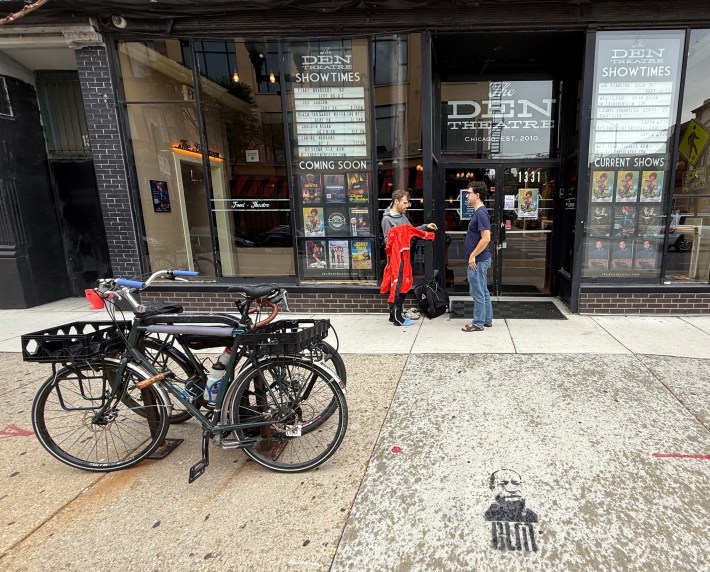
Before the speakers got into the meat of the discussion, Yepez gave a brief overview of the transit funding situation in Chicagoland. The CTA, Metra, and Pace are each preparing two potential budgets, one for a sunny-day scenario where state legislators pass funding, the other for a doomsday catastrophe in which Springfield drops the ball again.
"Even under the best scenarios, fare increases, administrative cuts, and efficiencies are planned for 2026," she said. "Public hearings are expected this fall to discuss specific service reductions. [the Regional Transportation Authority] was obligated to issue the 2026 budget targets by September 15, before lawmakers returned to session. Even if the funding is passed next session, the implementation delays between new money may not arrive until mid-2026, and officials warn this will create serious disruption."
Next, Smith gave an overview from the CTA's perspective. He said they might be announcing layoffs and service cuts in about four months, but they don't have any concrete plans before then. "We're going out and listening to our riders," Smith said. "I do recognize some of the faces from [CTA budget town halls] last week.]"
The last CTA budget town hall of 2025 will be this Thursday, September 25, at Malcom X college, 1900 W. Jackson Blvd. on the Near West Side.
"What we're doing is listening to our riders and residents to get their feedback. What is important to them," Smith added. "Because, to be honest with you, we only have a limited amount of levers that we can pull to address the budget. Really, it's about service coverage, timing, and essentially, where we put that service."
Most of the meeting focused on answering the questions from audience members. Delgado was asked about the $3.3 billion sitting in the State of Illinois' road fund, and whether it would be possible to use some of that money to save and fund transit, instead of the revenue strategies passed by the Senate in HB 3438. Those include a $3 per $1,000 suburban real estate transfer tax, a 10 percent ride-hail surcharge, and a $1.50 "climate impact fee" restaurant for retail and restaurant deliveries by motor vehicle, which SBC nicknamed the "burrito taxi tax."
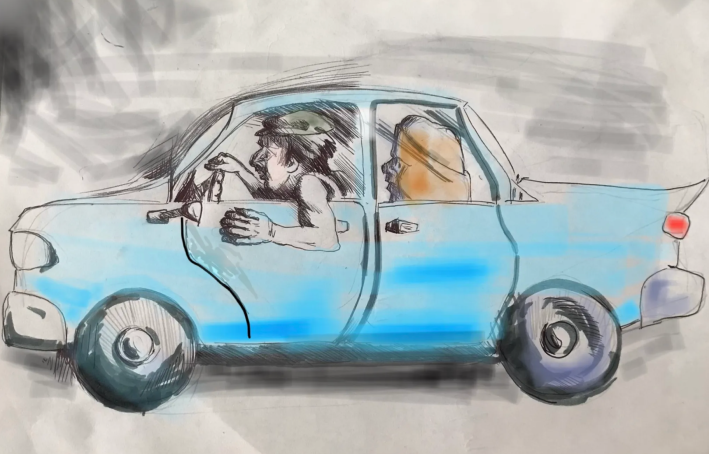
"When the decision was made to create that fund, it's really been focused on capital [physical infrastructure], which means that we can bond against it, or we can use those funds for capital projects, but we don't necessarily have to depend upon it year over year," Delgado replied. "It is going to continue to grow. So, I say that because when we talk about transit funding, what I'm really focused on is a sustainable and stable source that is going to grow over time."
"My concern with the road fund isn't that I'm trying to keep my hands completely off it. There may be opportunities to get access to it for different reasons related to transportation," Delgado added. "I really want to identify the funding source that we know that can be dedicated to transit, that we know is stable, sustainable, and will be there so that we don't have a situation like now, where we had a transit fix in 2008, but we're back here again talking about another transit fix."
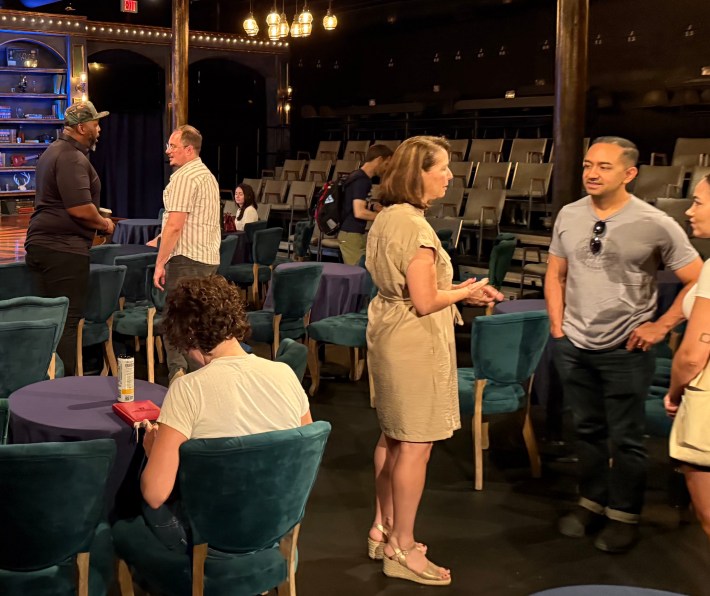
Later, Buckner said "A lot of people believe, just based on the way that we talk about this, that the necessity for this long, hardworking reform in governance and structure is precedented on COVID-19." He added, "But COVID-19 didn't break the system. It just showed us what was already broken." He argued we now have a chance to address those issues and engage in more robust discussions about traffic and commute patterns.
The Truman College Town Hall, covered by John Greenfield
Let's avoid running over the same ground as Cameron did. So for this Truman writeup, I'll focus on responses I got at that event from Democratic senators Mike Simmons and Ram Vilivalam, to recent comments on HB 3438 from their GOP colleagues, starting with Simmons.
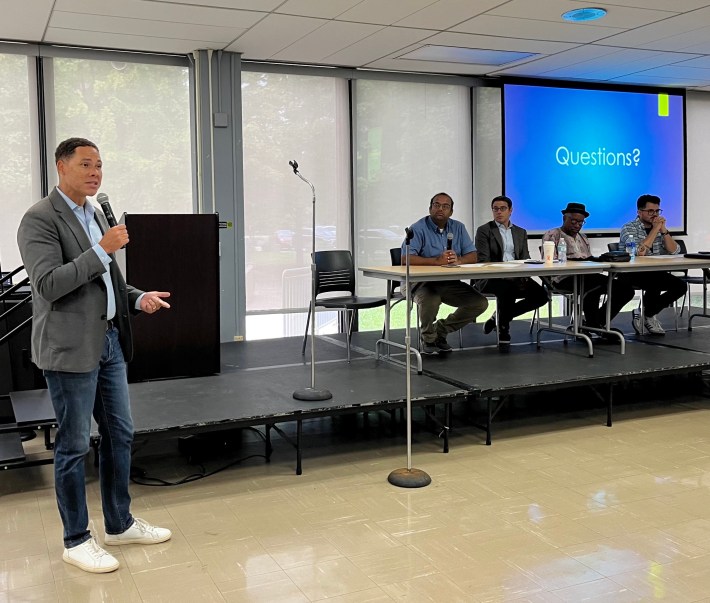
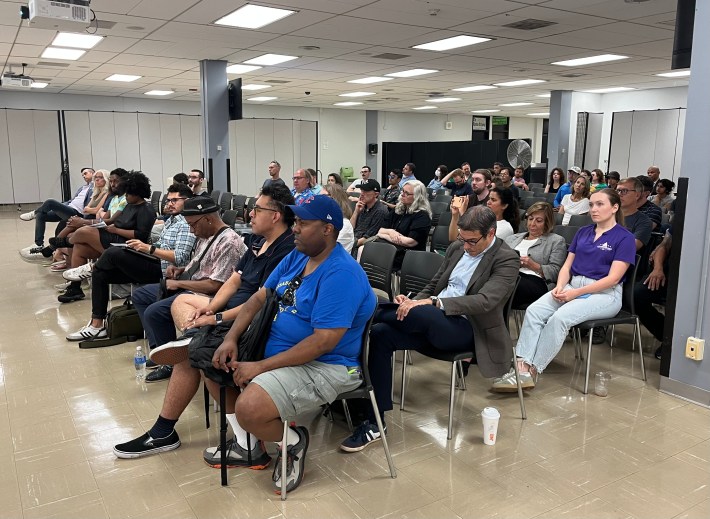
Sen. Simmons on Sen. Curran's claim of a "Chicago takeover" of transit
John Greenfield: I've been interviewing a lot of Republican legislators. [So far we've run interviews with transit-friendly lawmakers Sen Don DeWitte and Sen. Seth Lewis, with a third GOP interview coming out Thursday.] One of their main arguments is that the proposed [Northern Illinois Transit Authority, a more powerful replacement of the RTA] structure would allow the City, Cook County, and the State to steamroll the five collar county representatives. If all 15 of those [City/Cook/State] representatives vote for something, they can override five collar county people. I know there's also a scenario where you can pass a measure with only 12 votes, if at least two people from each camp support it.
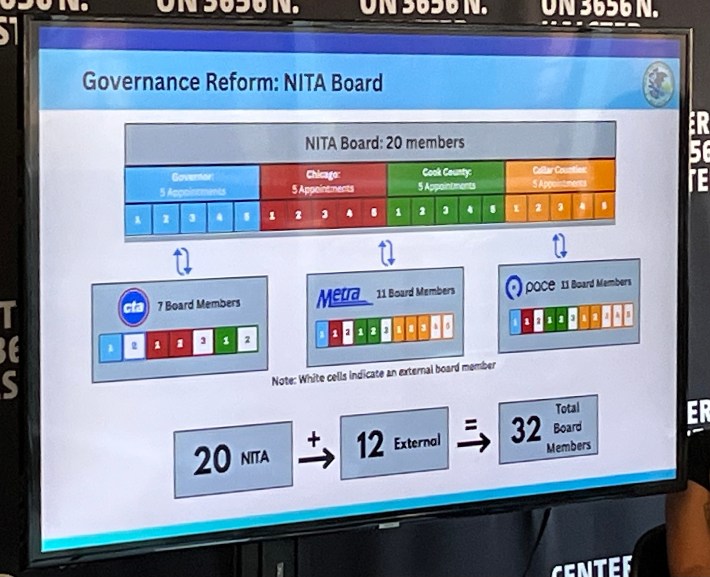
So the Republicans are okay with that situation, that as long as two collar county reps support a measure, then it can pass with 12 votes. But they're proposing to get rid of the 15-person override. I know you voted for HB 3438, so what's your position on that issue?

Sen. Mike Simmons: I remain a staunch supporter fully funding transit that includes $1.5 billion to modernize and reform transit, and it includes the governance reforms that were included in the governance bill that we passed in May. That ought to be our North Star.
And the way we've configured the governance reforms would give all sections of Chicagoland a robust voice in management and direction of transit. So we're happy to look at perspectives that may be coming in now. But the North Star remains reform, equity, and, most fundimentally, fully funding all of our transit.
JG: Would you be open to shifting the NITA structure to make it something the college counties would be more comfortable with?
SMS: Let me be clear what I would support. So I do support the NITA structure, having a consolidated agency to oversee all the transit for the whole 50, 60 miles of Chicagoland all the way to Crystal Lake all the way out Aurora, back to Lake Michigan.
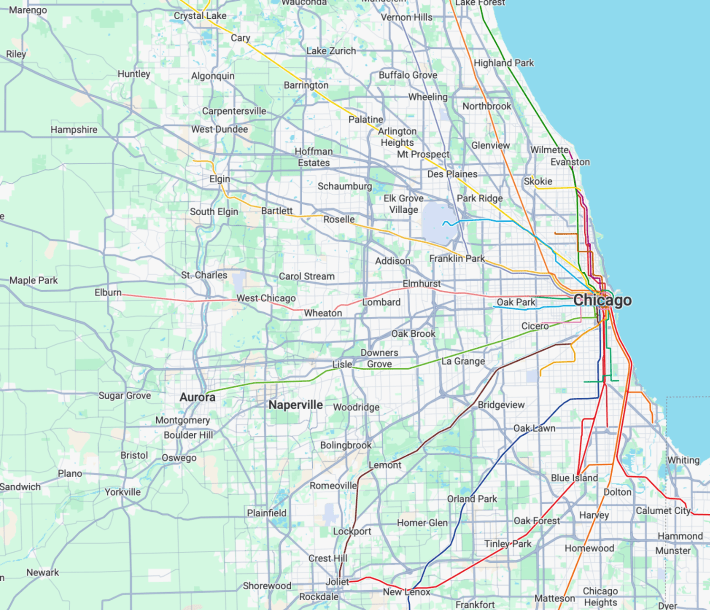
All of the different municipalities, including Chicago suburbs, should have a direct voice in the direction and management of translate. I think that was achieved in the NITA legislation that we passed in May. So I we can start looking at that, but we've already been very aggressive about making sure that there's an equitable voice from all sections of Chicagoland.
JG: For example, [Republican] Sen. John Curran, who represents Downers Grove and other places, has called the structure a power grab by the City. [Curran's website claims, "HB 3438... forces suburban taxpayers to pay for a billion-dollar bailout of Chicago Mayor Brandon Johnson’s mismanagement of Chicago’s public transit system while reducing suburban representation at the decision-making table."]
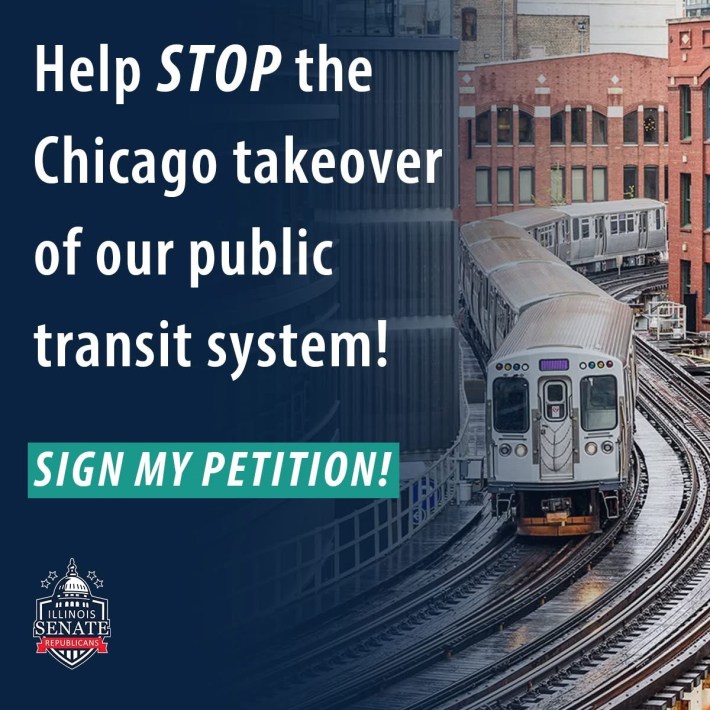
SMS: That's patently nonsense. Here's why. First of all, Sen. Curran district sits within Cook County and DuPage County. The CTA serves 35 suburbs plus the City of Chicago. So this argument that this represents some sort of special bailout for Chicago is not only fallacious, but it's disingenuous, and I think it sells us all really short on the reality of our transit systems.
Sen. Curran has constituents who depend on on Metro, Pace and CTA. If he wanted to do right with them, he would support this reform effort so that they can continue to have access to Metra that runs frequently, and not just during rush hours; Pace busses that can pick up his constituents in places like DuPage and Downers Grove, the same way that they should be picking up constituents that live in Crystal Lake, in Chicago, Evanston, Niles, and Romeoville.
And so this is not a this-region-versus-that-region issue. In fact, that's the whole point of the NITI structure to, consolidate all of this into one governing structure. So those, those kind of Republican agreements are a bit silly. Very silly.
JG: All right, thanks for speaking frankly about that.
SMS: You'll always get frank talk from me. [Laughs.]
Streetsblog Chicago has repeatedly made an offer to an Illinois Republican Senate Caucus spokesperson to interview Sen. Curran for more details on his perspective on this issue. That invitation still stands.
Villivalam responds to Sen. Lewis' claim transit bill could wait until spring
John Greenfield: Nice to meet you in person. Can I get a response to something that one of the Republican senators said?
[I read out loud the following statement from Senator Seth Lewis in our interview. He's been a youth baseball, basketball, and football coach, so I asked Lewis to use a sports metaphor.]
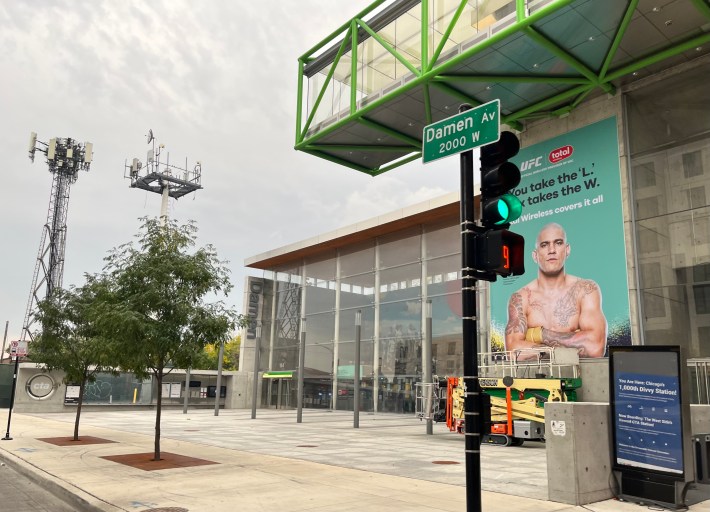
"Well, like in the sports world, time's been added to the clock. We were not aware of the extra $250 million that came in through the Wayfair tax. We were not privvy to RTA being able to transfer at least $74 million into the different agencies to stave off the fiscal cliff for at least six months, if not a full year. Reports are coming out that the fiscal cliff may not happen in 2026 as was originally reported, which is why I think you've seen leadership from the governor, Senate President [Don] Harmon, Speaker [Emanuel "Chris"] Welch, who run both chambers."
"This has not been, in my perspective, very urgent for them. I mean, we did run the bill at 11 o'clock at night on the last day [of the spring legislative session, May 31]. Things that have a sense of urgency grew much quicker than these transit talks have been going. And the House didn't vote on [HB 3438] that night. So where people are believing [October] veto session is the end of the game, I
think we're seeing some things happen in spring session, and it's not the looming crisis that's immediate."
I told Sen. Lewis I'd have to run that by the Democrats and see what they think. So here we are.
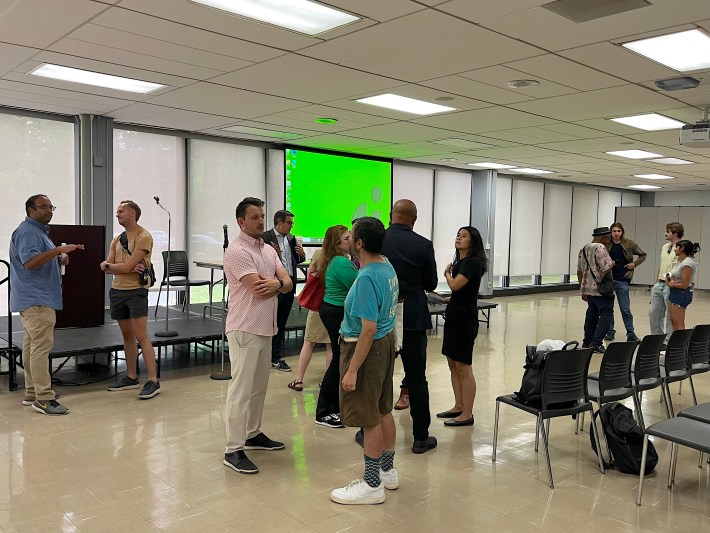
Sen. Ram Villivalam: Our [Democratic] caucus in the Illinois State Senate believes we should avoid any [transit angencies] feeling anxiety so as to propose certain cuts to service, or anyone that works in public transit facing a job loss. Because we believe in that, we passed a responsible plan to reform and fund our public transit system. That is what the Chicago Metropolitan Agency for Planning has recommended, Illinois Clean Jobs Coalition, the Labor Alliance for Public Transportation.
The challenge is the same, whether it's 2026 or 2027 or 2028. We know that there is going to be a massive fiscal cliff. In order to provide stability to the system... acting in October is the responsible action.
JG: We were pretty much in the same situation in May, when you were telling everybody that everything was prepared, lined up to do a vote on this stuff. The Senate passed the bill but the House did not. The House did a lot of work this summer. I know they've done a lot of field trips. But are we going to we have another situation like we did in May – are we going to be disappointed again?
SRV: We're working incredibly well with the House and [Gov. JB Pritzker's] office, and I think we're all committed to making sure it passes in October.
JG: So you feel it's really important to get this gone in October, and that you shouldn't listen to what Senator Lewis said.?
SRV: I believe it's incredibly important for our economy, and to the transit workers, to provide stability, and not have them face the proposition of potential service cuts and job losses.
JG: All right, thanks a lot. Good to meet you.
SRV: Thank you.

Do you appreciate Streetsblog Chicago's paywall-free sustainable transportation reporting and advocacy? We officially ended our 2024-25 fund drive in July, but we still need another $43K+ to keep the (bike) lights on in 2026. We'd appreciate any leads on potential major donors or grants. And if you haven't already, please consider making a tax-deductible donation to help us continue publishing next year. Thank you!
